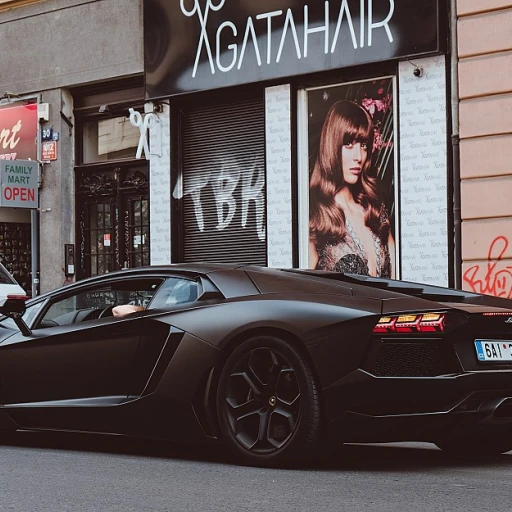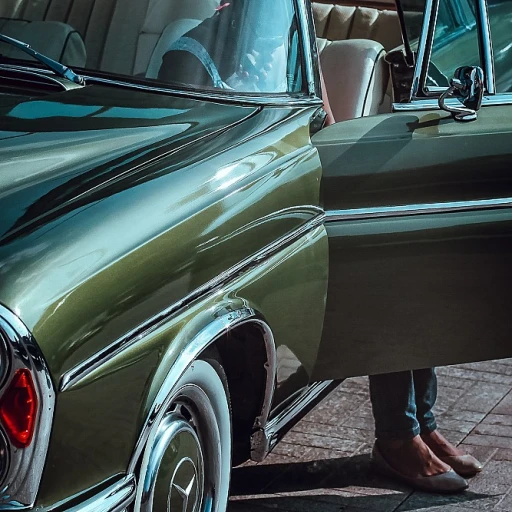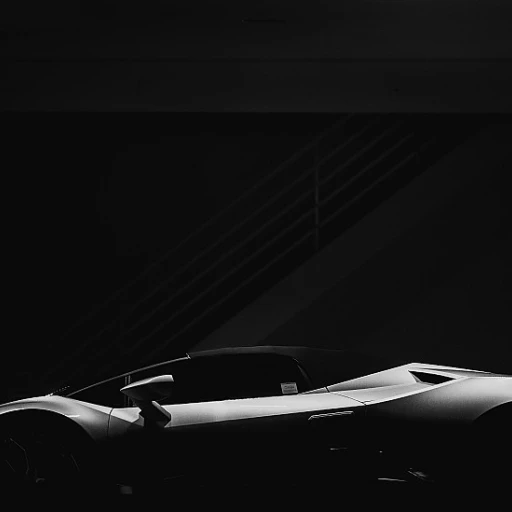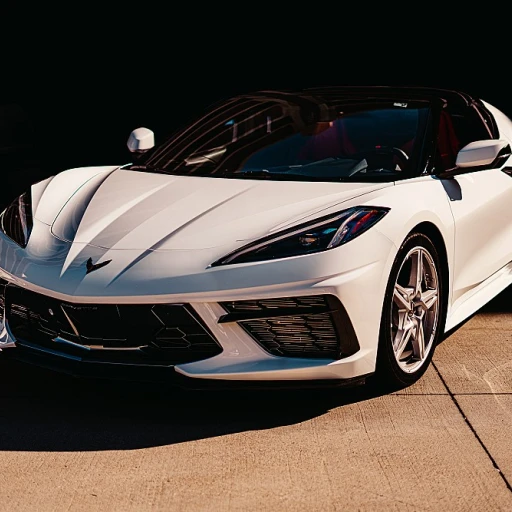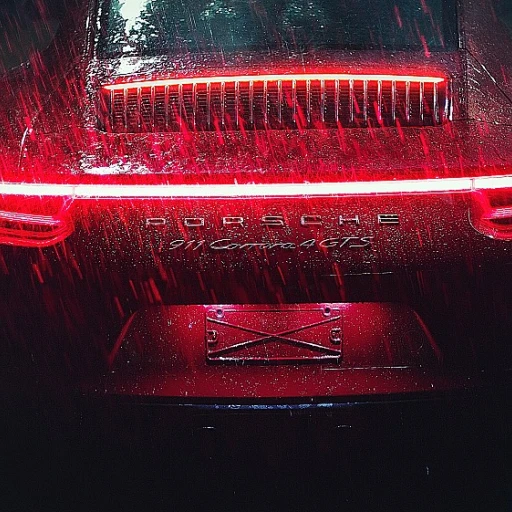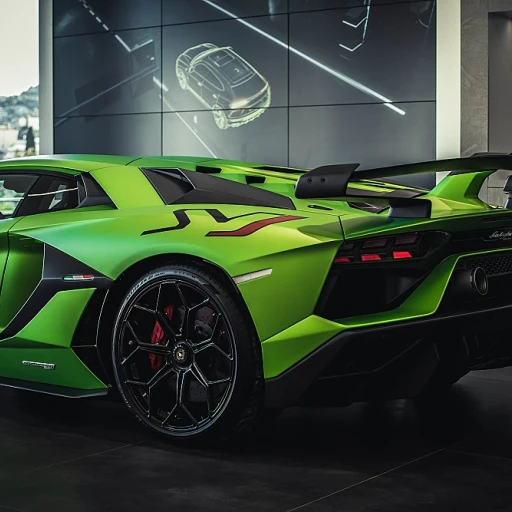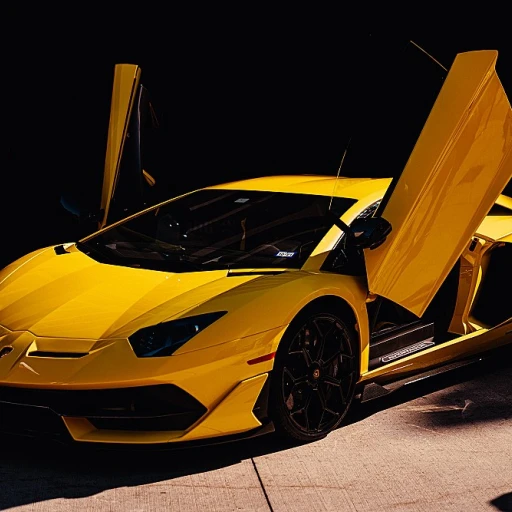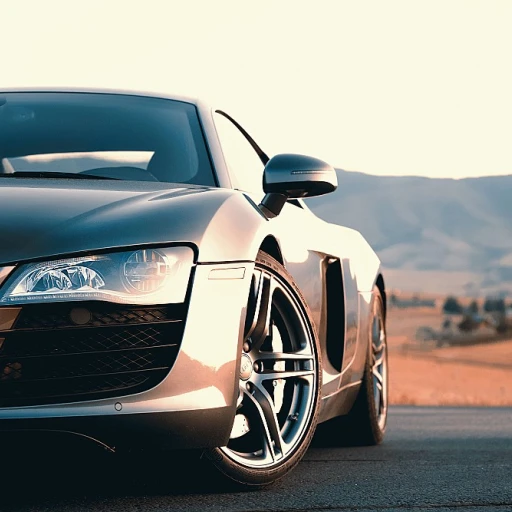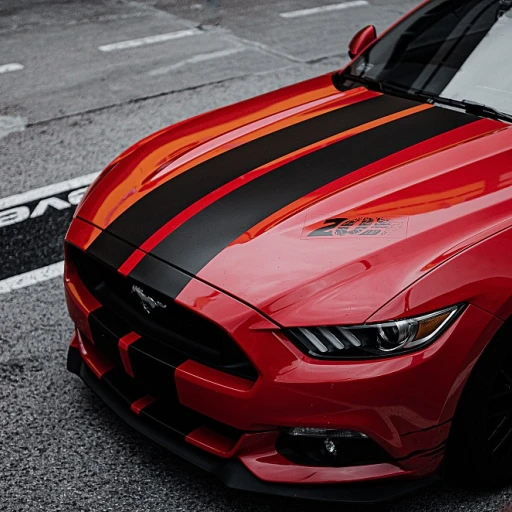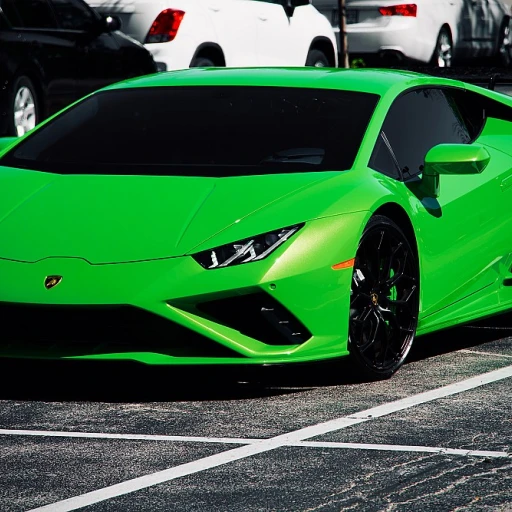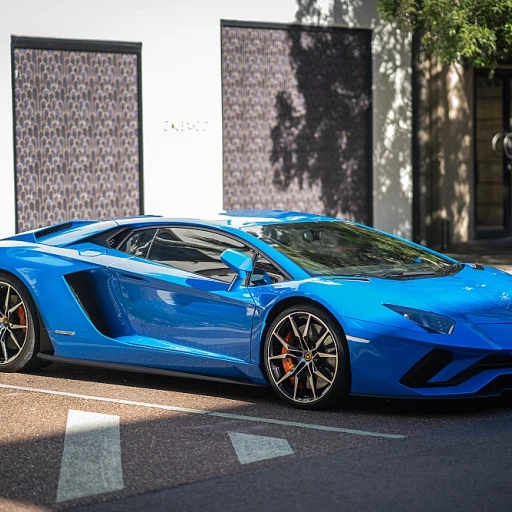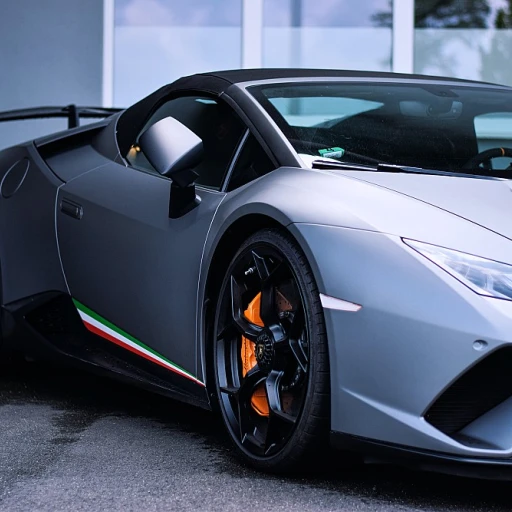
The rise of electric luxury cars
Electric meets luxury: an evolving relationship
Electric cars have been around for years, but it's only in recent times that they've truly become synonymous with luxury. The push toward sustainable living, coupled with advancements in technology, has not only made electric vehicles (EVs) more accessible but also more luxurious. Brands like Mercedes-Benz, BMW, Audi, and Tesla have been leading the charge, proving that you don't have to compromise on luxury to drive green.
The appeal of electric luxury cars
Why have electric luxury cars become so appealing? For starters, the performance is often superior to traditional internal combustion engines. According to a report by Kelley Blue Book, electric motors provide immediate torque, making acceleration swift and smooth. This isn't just a claim; it’s a fact evidenced by the Tesla Model S Plaid achieving 0-60 mph in just under 2 seconds! These performance levels were unthinkable a decade ago.
Moreover, there’s the peace and quiet. Electric motors are inherently quieter than their gas-guzzling counterparts. A report from the EPA noted that reduced noise pollution is one of the understated benefits of driving an EV. Now, imagine pairing that serenity with the high-quality interiors of brands like BMW's 7 Series or an Audi e-Tron.
Breaking the myth: electric vs. performance
One common misconception is that to go electric is to give up performance. This couldn’t be further from the truth. High-performance models like the Porsche Taycan and the Mercedes-Benz EQS are examples of EVs that match, and in some cases surpass, their gasoline-powered peers.
Mercedes-Benz has rolled out the EQS, a high-performance sedan that's garnered praise for its innovative tech and incredible range. The EQS can travel up to 350 miles on a single charge, according to the EPA. By comparison, the petrol-powered Mercedes-Benz S-Class offers a range of around 500 miles, but with growing charging infrastructure, the gap is closing quickly.
If you're curious about the high-performance aspects of plug hybrid and other sports cars, this blog post is worth the read.
So why settle for just any car when you can have the best of both worlds: luxury and eco-friendly driving?
Top electric luxury car brands
Legendary brands leading the charge
When it comes to electric luxury cars, some brands stand head and shoulders above the rest. Take BMW for instance. The German automaker's i4 and iX models are stellar examples of combining traditional luxury with electric power. According to BMW, the BMW iX can accelerate from 0 to 62 mph in just 4.6 seconds, showcasing high performance and luxury.
Tesla: the game-changer
A discussion about luxury electric cars wouldn’t be complete without mentioning Tesla. Specifically, the Tesla Model S has redefined what consumers expect from electric vehicles. Elon Musk’s brainchild offers more than just impressive acceleration; it’s also packed with cutting-edge features like the Autopilot system which gives you a taste of almost autonomous driving.
Mercedes-Benz: the star remains luminous
Mercedes-Benz has also embraced the electric revolution with its EQ lineup. The EQE sedan combines the brand’s iconic design and exquisite craftsmanship with electric performance. In a recent report, the Mercedes-Benz EQE was highlighted for its range, comfort, and state-of-the-art features like the MBUX Hyperscreen.
Porsche: driving luxury to a new zenith
Porsche has proven that electric cars can be luxurious and high-performance with the Porsche Taycan. The car's ability to go from 0 to 60 mph in 3.0 seconds has enthusiasts and experts talking.
Lucid Motors: newer yet impactful
On the newer side of the luxury electric car spectrum is Lucid Air. The company claims that its higher-end models, like the Lucid Air Dream Edition, offer an extraordinary range of up to 520 miles per charge, according to the EPA. This makes it one of the best long-range options in the electric vehicle market.
Range Rover: a step towards electrification
Though traditionally known for their luxury SUVs, Range Rover has ventured into the electric space with their plug-in hybrid models. This offers an option for those not quite ready to go fully electric.
Performance comparison: electric vs. traditional luxury cars
The battle of the engines
The question of whether electric vehicles can match the high performance of traditional luxury cars isn't just hype – it’s something enthusiasts, like the team at My Luxury Car, dig into deeply. Everyone wants to see if electric engines can really keep up with, or even outperform, their gasoline-guzzling counterparts.
Zero to sixty: the ultimate test
Performance metrics often focus on acceleration – a key allure of luxury cars. The Porsche Taycan, for example, blitzes the 0-60 mph test in just 2.4 seconds, rivaling the likes of the Tesla Model S Plaid, which scorches the track in an equally mind-boggling 2.3 seconds. Compare this to traditional luxury sports cars like the BMW M5 – an excellent vehicle, yet it still lags with a 0-60 mph time of about 3.2 seconds. Such speeds demonstrate that electric luxury vehicles aren’t just for eco-conscious drivers; they're attracting the race-track crowd too.
Torque: the unsung hero
One of the lesser-known advantages of electric engines is the immediate torque they deliver. While traditional internal combustion engines need to reach a certain RPM (revolutions per minute) to hit peak torque, electric engines deliver it instantaneously, especially appreciated in urban driving. Experts point out that this feature alone makes electric vehicles stand out in overall performance and driving pleasure.
Riding smoothly down the innovation highway
Luxury electric cars aren’t just about raw speed. The Mercedes-Benz EQS and the upcoming BMW i7 offer unprecedented comfort and refinement, integrating air suspension systems that adapt to road conditions in real-time for an impeccably smooth ride. Traditional luxury vehicles like the Mercedes-Benz S-Class are famous for their tranquil cabins and silky suspensions, but the EQS proves that luxury can come without compromise on an electric platform.
Case study: the lucid air vs. tesla model s
The epic showdown between the Lucid Air and Tesla Model S Plaid highlights the competitiveness of the electric luxury market. The Lucid Air Dream Edition boasts a dual-motor setup producing an eye-watering 1,111 horsepower. In comparison, the Tesla Model S Plaid doesn't fall short, with 1,020 horsepower and a full self-driving (FSD) feature that's stirring up conversations everywhere. In terms of driving range, the Lucid Air outpaces with an impressive EPA estimated 503 miles, whereas the Tesla Model S Plaid offers around 396 miles. This contest clearly brings to life the thrilling and high-stakes competition in the sector.
Sound of silence: high performance, quiet ride
Luxury has always been synonymous with a quieter cabin, and electric cars shine here too. Without the noise of combustion engines, vehicles like the Audi e-Tron ensure a peaceful drive, allowing drivers to revel in the comfort and high-tech infotainment systems. Traditional luxury, like in the Rolls-Royce Ghost, prides itself on soundproofing, but EVs naturally offer this serene experience thanks to their design.
In summary, the rapidly evolving electric luxury car market has not only matched but in many ways surpassed traditional gas-powered counterparts in performance, offering a perfect blend of speed, instantaneous torque, and an incredibly smooth, quiet ride.
Range and charging infrastructure
The importance of range in electric luxury cars
When we talk about the best electric luxury cars, one major factor that often gets the spotlight is range, or how far a car can travel on a single charge. This isn't just about numbers—it's about freedom and peace of mind.
Range statistics and comparisons
For instance, the Lucid Air, one of the frontrunners in the market, boasts a range of up to 520 miles, according to the EPA. In comparison, the Tesla Model S offers up to 405 miles. These figures are more than just statistics; they represent the potential to travel long distances without frequent stops.
The role of charging infrastructure
Even with impressive ranges, the real-world usability of electric cars heavily depends on the availability of charging stations. As of 2023, there are over 100,000 public charging stations in the U.S., according to Alternative Fuels Data Center. This figure is rapidly growing, thanks to initiatives by companies like EVgo and ChargePoint, and the push from the U.S. government to expand the national EV charging network.
Experts weigh in
Renowned automotive analyst Kelley Blue Book, in their 2023 report, highlighted the significance of fast charging capabilities. Fast charging dramatically cuts down the time it takes to recharge a vehicle, making electric cars more viable for long trips. For example, the Porsche Taycan's 800-volt architecture allows it to recharge from 5% to 80% in just 22.5 minutes.
Additionally, Consumer Reports pointed out that manufacturers like BMW and Mercedes-Benz are investing heavily in improving battery technology and increasing the efficiency of their electric vehicles. This not only enhances range but also contributes to the sustainability and overall performance of these luxury cars.
Real-world examples
Let's consider the Mercedes-Benz EQE Sedan. According to the manufacturer, it offers around 300 miles on a single charge. However, real-world tests from automotive reviewers like Car and Driver show that actual range can vary based on driving conditions, climate, and usage patterns. This is where the blend of battery technology and charging infrastructure becomes crucial.
Final thoughts
While the range is an important factor, the development of a robust charging network is equally vital. Together, they ensure that electric luxury cars are not just efficient but also practical for everyday use. The future holds promising advancements, with continuous innovations in both battery technology and charging infrastructure, making the transition to electric vehicles easier and more appealing for luxury car enthusiasts.
Innovative features and cutting-edge technology
Smart interfaces and autonomous capabilities
When it comes to innovative features and cutting-edge technology, electric luxury cars outshine their traditional gasoline counterparts. Take, for instance, the BMW iX and the Mercedes-Benz EQS, both models come with dynamic user interfaces that respond to an array of commands and preferences. The digital instrument cluster alone in these cars is nothing short of a cockpit from a sci-fi movie, offering unparalleled driver support and control.
AI-driven performance enhancements
High-performance models like the Porsche Taycan and Tesla Model S are equipped with AI-driven systems that enhance drivability. This is no longer a matter of having a faster or more robust vehicle, but about how those capabilities are harnessed and optimized by artificial intelligence. According to a report by J.D. Power, 82% of electric vehicle owners value advanced AI features as a primary selling point of luxury electric vehicles.
Seamless connectivity and infotainment
The paradigm shift towards electric has also escalated the quality of in-car infotainment systems. For example, the Lucid Air boasts a 34-inch curved Glass Cockpit 5K display that merges critical driving information, essential notifications, and incredible entertainment features. Not to be outdone, the Tesla Model X offers a theater-like experience with its 17-inch cinematic display and immersive sound system.
Self-driving advancements and safety features
Safety is another domain where electric luxury cars are innovating. Tesla's Full Self-Driving (FSD) system and Mercedes-Benz's Drive Pilot are leading the charge with advancements in autonomous driving. According to the National Highway Traffic Safety Administration (NHTSA), self-driving capabilities could potentially reduce traffic fatalities by up to 90%. Parameter-driven systems and real-time data processing help ensure not just luxurious, but also safer driving experiences.
Environmental control and customization
Electric luxury cars are pushing the boundaries in climate control and cabin customization. Innovations aren't limited to just air-conditioning. BMW's i7, for example, offers an intricate climate concierge system that adjusts temperatures and air quality based on real-time data and passenger preferences. Moreover, the EQS features a HEPA filtration system that can effectively remove over 99.97% of particulates, ensuring the cleanest possible in-car environment.
Enhanced charging experiences
Charging infrastructure isn't just about plugging in anymore. With companies like Electrify America and ChargePoint enhancing their networks, brands such as Audi and Volvo have rolled out advanced apps that guide users to the nearest fast-charging station. Even better, they now offer seamless in-car payment options, making it easier than ever to charge on the go.
For users who want to explore further, don't miss reading the best luxury electric cars: a deep dive into top models and trends.
Case study: Tesla Model S vs. Lucid Air
Tesla Model S: a game-changer in the electric luxury car market
The Tesla Model S has revolutionized the electric luxury car space since its debut. According to a ZDNet article, the 2022 version of the Model S Plaid boasts an astonishing 0-60 mph time of just under 2 seconds, redefining what we expect from a luxury electric sedan. And when we talk range, Tesla still leads the pack with approximately 396 miles on a full charge, as endorsed by an EPA report.
Lucid Air: challenging the status quo
On the other hand, the Lucid Air presents a formidable challenge to Tesla's dominance. The Vehicle boasts a range of up to 520 miles on a single charge, making it the longest-range electric vehicle approved by the EPA. MotorTrend called it a "stunning feat of engineering," citing its 1,111 horsepower and a full multimedia package including a 34-inch curved Glass Cockpit 5K display.
Price and value: where do they stand?
Price is another crucial factor. The Tesla Model S Plaid starts at approximately $135,990, whereas the Lucid Air Dream Edition starts around $169,000. While the Lucid Air might fetch a higher price, the extra miles per charge and superior headroom can justify the higher upfront cost for some buyers.
Ownership experience: user feedback
User feedback provides another layer of insight. According to J.D. Power, Tesla Model S owners appreciate the car's Supercharger network, which includes 30,000 Superchargers globally, making long-distance travel a breeze. Lucid, however, is still developing their charging infrastructure, which could be a temporary limitation but worth considering.
It’s safe to say that both cars offer unique advantages. If ultimate range and cutting-edge design are priority factors, Lucid Air might be the better choice. Conversely, if rapid acceleration and extensive charging networks are more appealing, Tesla Model S holds strong. For more insights into performance comparisons, see this full review.
Sustainability and environmental impact
Reducing the carbon footprint with luxury electric cars
The world is waking up to the harmful effects of traditional combustion engines on our environment, making sustainability a top priority. Luxury electric cars dramatically lower carbon emissions, helping reduce the total carbon footprint of transportation.
As per a 2021 study by the International Council on Clean Transportation (ICCT), electric vehicles (EVs) emit 50-60% less CO2 over their lifetimes compared to traditional combustion-engined vehicles. This reduction plays a significant role in combating climate change.
Eco-friendly materials and recycling initiatives
Luxury car manufacturers now incorporate eco-friendly materials and recycling initiatives into their production processes. Brands like Mercedes-Benz and BMW have started using recycled materials for car interiors, including seat covers, dashboards, and even sound insulation. Experts, such as Chris Hebeisen from the Environmental Protection Agency (EPA), state that these practices can immensely reduce the environmental footprint of car manufacturing.
Many luxury EVs, including the Tesla Model S, significantly emphasize the use of sustainable materials. Tesla's vegan leather seats are a prime example, eliminating the need for traditional leather, which has a considerable environmental cost.
Energy-efficient manufacturing processes
Beyond the cars themselves, the manufacturing processes are undergoing eco-conscious transformations. Companies are making efforts to build carbon-neutral factories. For instance, Audi aims to achieve net-zero emissions for all its production sites by 2025. This push for green factories aligns with global efforts to combat climate change.
BMW's plant in Leipzig, Germany, for instance, uses wind turbines to generate its electricity. This innovative approach not only powers the plant but also sets a new standard for energy-efficient automobile manufacturing. Such initiatives are essential to ensure a greener production process that supports sustainable practices.
Case study: Lucid Air's sustainability approach
Lucid Motors sets a benchmark with its sustainability ethos, particularly through its flagship model, the Lucid Air. The manufacturing site in Casa Grande, Arizona, is built with state-of-the-art energy-efficient technologies. Lucid also uses a substantial amount of recycled materials in their battery packs.
The Lucid Air’s battery recycling program collaborates with Redwood Materials to ensure the end-of-life batteries are either refurbished or the materials are extracted for reuse. This facilitates a reduction in the carbon footprint of both manufacturing and disposal.
Lower maintenance and longevity
One lesser-known sustainability benefit of electric cars is their comparatively lower maintenance requirements. EVs typically have fewer moving parts compared to internal combustion engines, resulting in reduced maintenance demands. According to William Greene, an analyst from Kelley Blue Book, “Electric vehicles have excellent longevity, and fewer mechanical issues lead to fewer replacements and repairs, further lessening their environmental impact.”
This lower maintenance requirement also means fewer resources are consumed over the vehicle’s lifespan, giving EVs a green edge over traditional luxury cars. This sustainability benefit becomes even more significant when combined with renewable energy sources for charging the cars.


